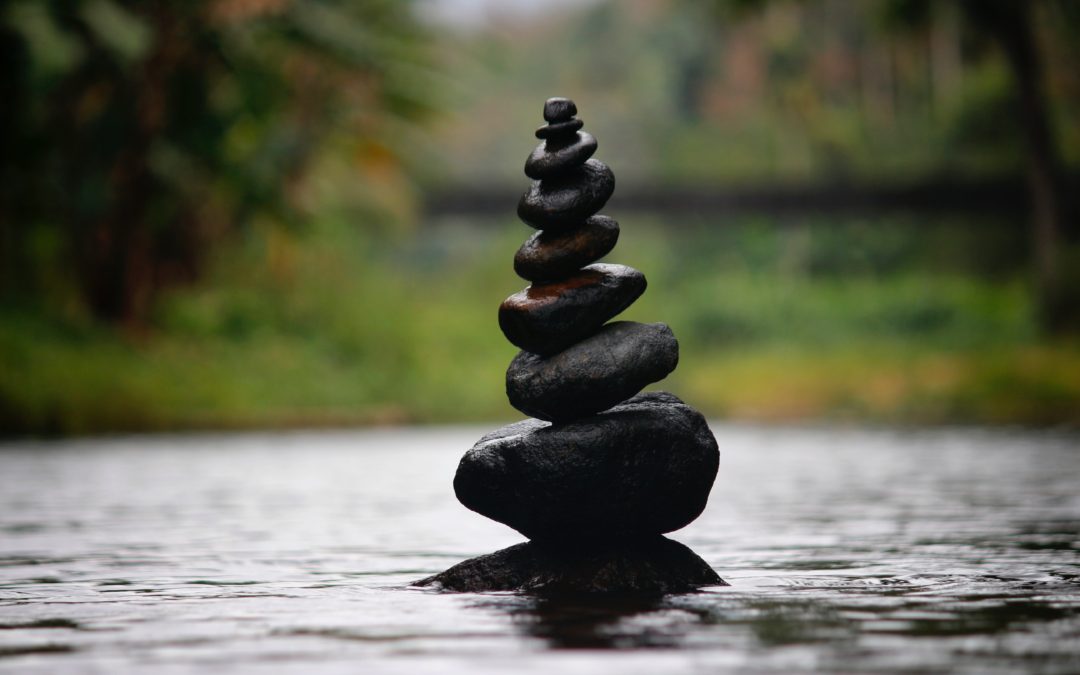By the hour, we are bombarded with news articles, personal view points, communications from employers, churches and schools all warning of what has happened and speculations of what is yet to come with COVID-19. Although all the statistics, long lines at toilet paper retailers and personal testimonials are sobering, the rising level of anxiety and stress amongst Americans is also cause for alarm. As we begin to process what the growing number of confirmed cases may mean for our jobs, our children, our retirement, I encourage you to PAUSE.
I know it may sound contrite given the current landscape, but with uncertainty comes a feeling of helplessness and despite all the things out of your control you can still control your individual response by practicing self-care to balance the never-ending wave of pandemonium around you.
It is easy to get sucked in to the craziness when you feel at a loss for what you “should” be doing and while certain preparedness steps should be followed (you should always have emergency supplies in your house) it is not the time to buy 10 cases of toilet paper from Costco or call your child’s school 10 times a day.
Need Support? Schedule a FREE Consult
Pause and take a deep breath in, breathe out slowly…….now read on for some helpful tips.
- Deep relaxed breathing every time your mind starts to spiral or you feel your shoulders tensing up towards your ears.
- Deep breathing has profound effects on your sympathetic nervous system. It high-jacks an overstimulated system and can offer an immediate calming effect. When you are stressed your breathing typically becomes shallow and rapid, deep breathing allows for a more full breath from the abdomen.
- To perform, place one hand on your abdomen right below your rib cage. Inhale slowly (count to four) and deeply through your nose (you should feel you abdomen rise), when you have taken in a deep slow breath, pause and hold for 1-2 seconds and then slowly exhale through your mouth or nose for 4 seconds. Repeat 4 more times for a total of 5 breaths. As you breathe think about the breath going into each muscle and the tension releasing as you exhale.
- Deep breathing has profound effects on your sympathetic nervous system. It high-jacks an overstimulated system and can offer an immediate calming effect. When you are stressed your breathing typically becomes shallow and rapid, deep breathing allows for a more full breath from the abdomen.
- Practice Gratitude
- It is common when big events start happening that are out of our control to spiral into negativity and begin focusing on everything that isn’t going right. Every day, speak or write out 5 things that you are grateful for. One of my favorite things to do is each night with my family around the dinner table. We don’t usually share 5 things but we all try to come up with at least one specific thing we are grateful for.
- Use the time at home for connecting with your children and spouse and not scrolling on your phone
- Deep connection works wonders for decreasing stress and anxiety. Instead of scrolling on your phone, take time to connect with your family in way that busy schedules don’t always allow. Games, baking, reading, snuggling up to a movie, etc have a two fold effect. It keeps your mind distracted and relaxed and allows you undivided time that may not always be realistic.
- Get in some movement
- While it may no longer be safe to head to your gym, movement has profound effects on mental health and provides a much needed positive boost to the brain. Go for a walk outside if you are able, if you have stairs try to get in a 20 minute stair climb workout or challenge your family to a wrestling tournament. Laughter and movement are a great combo for fighting anxiety and stress.
- Clean your house
- Cleaning is one of my go to things to release stress. I feel in control, like I have somehow done something so great for me and my family. Not only will it help clear out illness and kill germs, it provides a much needed distraction and sense of accomplishment.
- Talk to someone
- Take some time to call up friends or family and catch up (do not spend the whole call talking about the coronavirus). If you feel you are in need of some professional support, reach out to a counselor or help center to talk through what you may be thinking.
- Journal
- Writing down your thoughts is another way to help release fears from manifesting in your brain. Journaling allows you to express your thoughts free of judgments and opinions and provide clarity.
- Read a new book or the Bible
- We may not always have time to read on a regular basis. Consuming material unrelated to a current situation can offer a welcomed break and hope.
- Pray
- Often
- Get adequate rest
- Getting sleep not only provides your body time to recover from illness, it can also help prevent illness so you don’t get run down. In addition individuals who are well rested tend to have a brighter outlook and ability to cope with external stressors or anxiety. Never has 7-9 hours been so important!
Although there are real threats facing our world, calming our individual anxiety and fears and combating with positive behaviors will help to maintain some semblance of sanity while we weather uncertainty.


Recent Comments